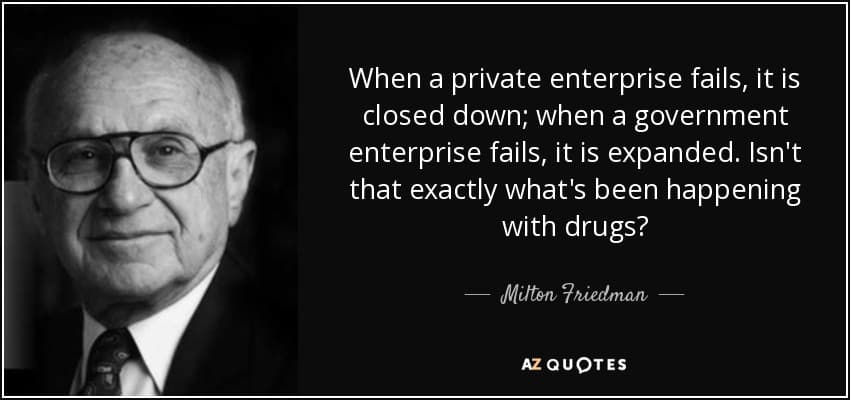Milton Friedman's Enduring Challenge: Failing Government Enterprises Expand, Private Ones Close

Renowned economist and Nobel laureate Milton Friedman famously articulated a stark contrast between the fates of private and government enterprises, a perspective that continues to fuel debates on economic policy. In a widely cited statement, Friedman asserted, > "If a private enterprise is a failure, it closes down—unless it can get a government subsidy to keep it going; if a government enterprise fails, it is expanded. I challenge you to find exceptions." This observation underscores his long-standing critique of government intervention and the inherent differences in accountability between the public and private sectors.
Friedman, a leading figure of the Chicago School of Economics, consistently argued that private businesses operate under a clear "bottom line" of profit and loss. As he elaborated in his essay "Why Government Is the Problem," if a private venture proves unsuccessful, its owners face direct financial consequences, providing a strong incentive to either rectify the issues or cease operations. This market discipline, he contended, ensures efficiency and responsiveness to consumer demand.
Conversely, government enterprises often lack this direct financial accountability. Friedman pointed to examples such as the U.S. Post Office, which he contrasted with private delivery services like United Parcel Service (UPS), to illustrate how public entities can continue to operate and even expand despite inefficiencies or failures. He argued that instead of facing closure, failing government programs or agencies frequently secure additional funding from taxpayers, often under the premise that initial failures were due to insufficient resources.
This phenomenon, according to Friedman, stems from differing incentives. In the public sector, the self-interest of individuals and groups, including bureaucrats and special interests, can align to perpetuate or enlarge programs, regardless of their effectiveness. He noted that government actions often provide substantial benefits to a few while imposing small, diffused costs on many, making it politically challenging to dismantle even underperforming initiatives. Such dynamics, he believed, contribute to "government failure," where well-intentioned policies yield undesirable outcomes.
Friedman's insights remain central to discussions about the role of government in the economy, from debates over subsidies and nationalized industries to the efficiency of public services. His challenge highlights the enduring tension between market-driven accountability and the political realities that can sustain and expand public operations, even in the face of demonstrated failure.